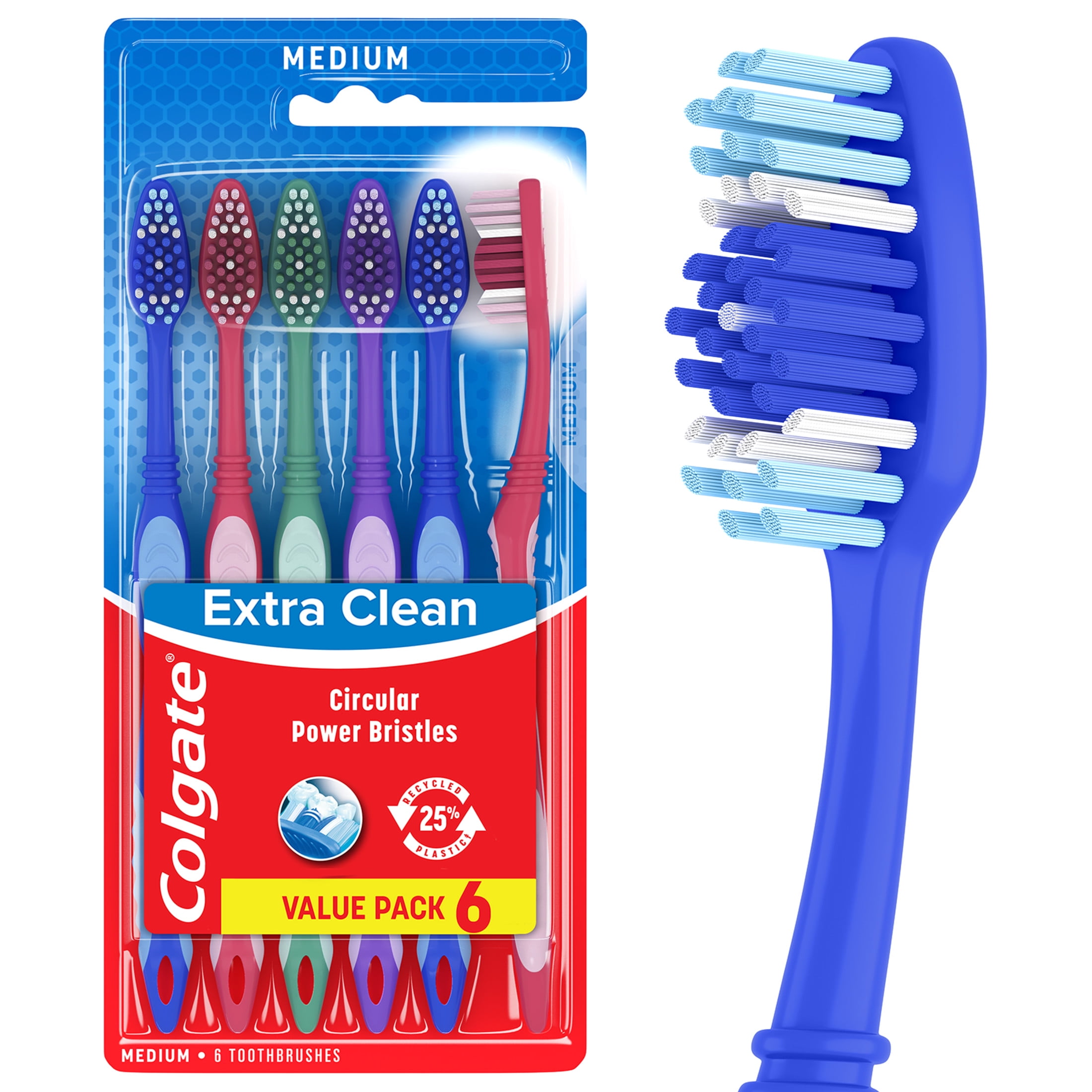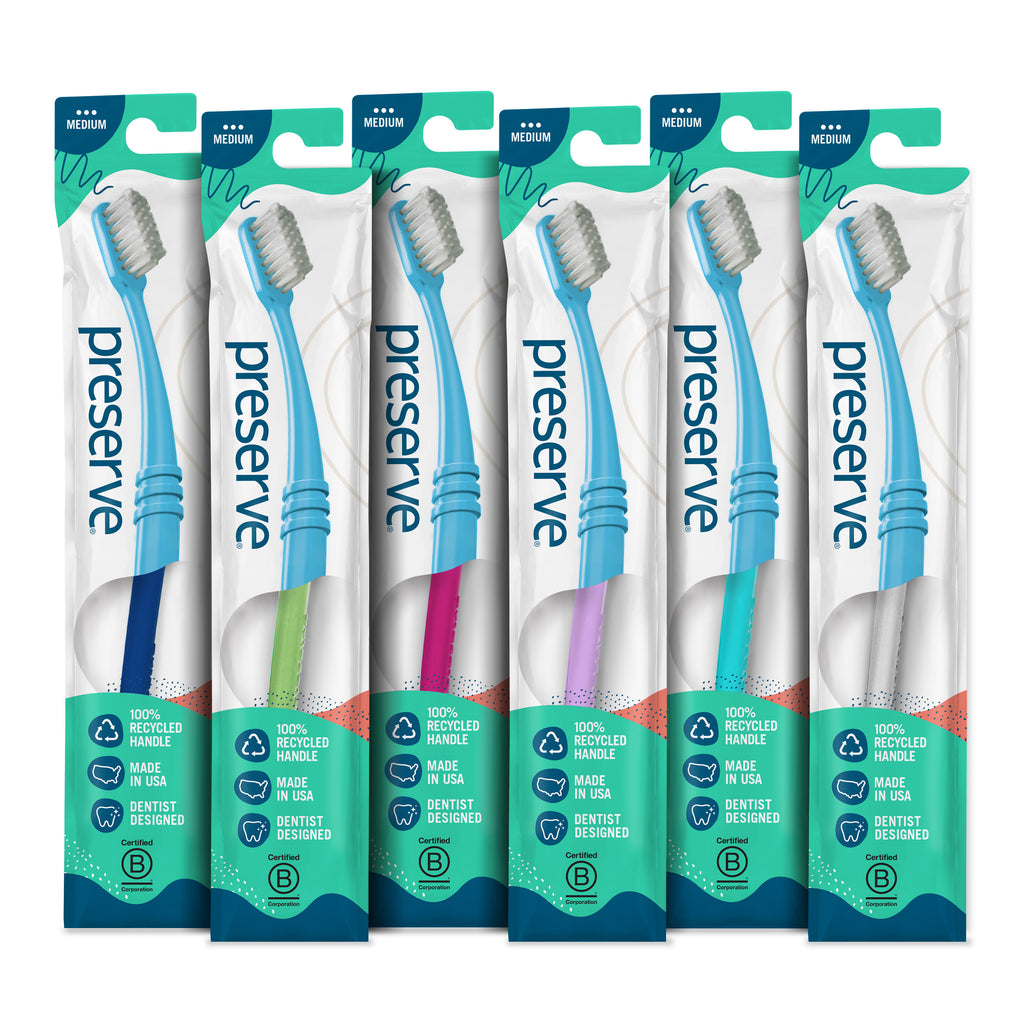Toothbrushes and Sensitive Gums: Gentle Options That Actually Work
All About Toothbrushes: Understanding Their Role in Keeping a Healthy Smile
Toothbrushes are essential tools in oral hygiene. They help eliminate plaque and food particles, adding significantly to dental health and wellness. The range of toothbrushes readily available today caters to individual preferences and certain oral needs. Recognizing these options and their appropriate use can bring about much better dental care. Lots of people might not recognize the full influence of Toothbrush selection and upkeep on their total dental wellness. What elements should one consider to genuinely maximize their Toothbrush experience?
The History of Toothbrushes
The development of tooth brushes reflects humankind's continuous quest for oral health. Early civilizations made use of fundamental devices, such as branches and animal bones, to clean their teeth. The ancient Egyptians crafted torn ends of penetrate primitive tooth brushes around 3000 BC, while the Chinese established the very first bristled Toothbrush in the 15th century, making use of pet hair affixed to bamboo deals with. This innovation noted a considerable innovation in dental treatment.
Kinds of Toothbrushes
Numerous kinds of tooth brushes are made to fulfill the varied demands of users. Manual toothbrushes, the most common type, come in various bristle strengths and head sizes, allowing people to select one that really feels comfy and effective. Electric tooth brushes have actually gotten popularity for their capacity to supply consistent brushing motion, commonly featuring timers and pressure sensors to enhance dental care. In enhancement, there are specialized tooth brushes, such as those made for kids, which commonly include fun styles and smaller go to less complicated handling. Some customers may prefer soft-bristled brushes, which are gentler on gums, while others choose medium or tough bristles for extra hostile cleaning. Disposable tooth brushes serve as convenient options for traveling. Each type offers an unique objective, guaranteeing that users can locate a toothbrush that lines up with their specific dental hygiene practices and preferences, ultimately adding to much better oral health.
How to Select the Right Toothbrush

In addition, the take care of should provide a comfortable grip, permitting reliable control throughout cleaning. Electric tooth brushes can be beneficial for some, offering features like timers and stress sensors that improve oral care. It is also important to assess individual preferences, such as sensitivity and any kind of specific oral problems, when picking a tooth brush. Inevitably, getting in touch with a dental expert can give tailored suggestions, ensuring one selects a toothbrush that ideal satisfies their dental wellness requirements.
Appropriate Toothbrush Use Methods
Understanding proper Toothbrush use methods is important for maintaining perfect dental wellness. This includes selecting the appropriate brush, employing the proper cleaning technique, and sticking to suggested frequency and period for cleaning sessions. Each of these factors plays an essential duty in accomplishing a brighter, healthier smile.
Picking the Right Brush
Choosing the appropriate Toothbrush is essential for preserving optimal dental hygiene and achieving a healthy and balanced smile. When choosing a tooth brush, customers need to think about several aspects. To start with, the bristle type is crucial; soft bristles are typically advised to stop gum tissue damage while successfully cleaning teeth. On top of that, the brush head size need to be ideal for the person's mouth, allowing very easy accessibility to all locations (Toothbrushes). In addition, users may pick in between electric and hands-on tooth brushes, with electrical options often offering improved cleansing performance. Lastly, personal choices, such as take care of grasp and color, can influence the choice. Making sure the appropriate Toothbrush is selected can significantly affect the performance of day-to-day dental treatment regimens and contribute to long-term oral wellness
Correct Cleaning Strategy
Although several individuals have a tooth brush, not every person understands the appropriate method for effective cleaning. Correct cleaning starts with positioning the Toothbrush at a 45-degree angle to the periodontal line, allowing the bristles to get to both the teeth and periodontals. Gentle, circular movements are recommended, preventing severe scrubbing, which can harm enamel and aggravate gum tissues. Each quadrant of the mouth must be provided equal focus, ensuring extensive cleaning of all surface areas-- external, internal, and eating locations. It is likewise essential to comb the tongue to remove germs and freshen breath. Adhering to these methods can improve plaque removal and add to general oral health and wellness, advertising a brighter, much healthier smile.
Frequency and Period
Preserving a consistent cleaning regimen is vital for optimal oral wellness. Dental experts suggest brushing at least twice a day-- once in the early morning and once prior to bed-- to successfully remove plaque and protect against dental cavity. Each brushing session must last for at the very least 2 minutes, enabling adequate time to clean up all surface areas of the teeth thoroughly. It is very important to make use of gentle, circular movements to secure the gums while successfully cleansing the enamel. Additionally, individuals need to change their Toothbrush every three to four months or faster if the bristles come to be torn. By sticking to these guidelines, people can markedly improve their dental health practices and add to lasting dental wellness. Consistency in regularity and period is key to preserving a healthy and balanced smile.

Tips for Keeping Your Tooth brush
Maintaining a toothbrush is necessary for dental wellness. Toothbrushes. Correct storage space strategies, a normal substitute timetable, and routine cleaning can greatly boost its effectiveness. By adhering to these standards, individuals can guarantee their Toothbrush stays a dependable tool for achieving a healthy smile
Proper Storage Space Strategies
To ensure a tooth brush stays sanitary and reliable, proper storage methods are important. After brushing, it is very important to extensively rinse the Toothbrush under running water to remove tooth paste and particles. The Toothbrush ought to be saved upright in an owner, allowing air flow to help with drying out. Maintaining the Toothbrush in a closed container or drawer can advertise bacterial growth as a result of moisture retention, so this must be avoided. Additionally, it is advisable to keep a distance from other tooth brushes to avoid cross-contamination. For houses with several customers, private owners can help keep brushes different. Routine cleansing of the storage location can even more boost hygiene, making certain that the Toothbrush stays a reputable tool for oral health and wellness.
Regular Replacement Arrange
A constant replacement routine is important for assuring the effectiveness of a toothbrush. Oral professionals suggest changing toothbrushes every three to 4 months, or quicker if the bristles end up being torn. Worn bristles do not clean teeth properly and can harbor germs, reducing dental hygiene initiatives. Additionally, individuals recovering read this post here from illness needs to Check This Out consider changing their toothbrushes to stop reinfection. This basic habit promotes perfect oral health and enhances the overall effectiveness of brushing. In addition, those utilizing electrical toothbrushes should verify they replace the brush heads according to the producer's guidelines. Complying with a regular replacement schedule not only sustains a healthy smile however likewise enhances the relevance of maintaining proper oral hygiene practices.
Cleaning Your Toothbrush
Cleansing a toothbrush frequently is crucial for guaranteeing optimal oral hygiene. In time, toothbrushes can harbor bacteria, which may compromise oral wellness. To keep a tidy tooth brush, it is suggested to wash it completely under warm water after each usage, ensuring all tooth paste and debris are removed. In addition, soaking the Toothbrush in a service of equal components vinegar and water can aid sanitize the bristles. This ought to be done once a week for ideal results. It is additionally suggested to keep the Toothbrush in an upright position, permitting it to air dry and prevent dampness buildup. Ultimately, prevent sharing tooth brushes, as this can transfer hazardous microorganisms. Following these ideas can prolong the life of the Toothbrush and advertise better dental health.
The Impact of Toothbrushes on Oral Health And Wellness
While many aspects contribute to oral health and wellness, the option of Toothbrush can substantially influence a person's dental hygiene regimen. The design and bristle kind of a toothbrush are essential aspects that influence plaque removal and periodontal health. Soft bristles are typically recommended by dental experts, as they properly clean teeth without causing damages to the gums. Furthermore, the dimension of the Toothbrush head should allow for very easy handling in the mouth to reach all locations, including difficult-to-access back teeth.
Electric toothbrushes have likewise obtained appeal due to their capability to supply even more reliable and regular cleansing through oscillating or revolving motions. Researches indicate that customers of electric tooth brushes typically attain far better plaque decrease compared to manual brushes. Generally, the appropriate Toothbrush can boost a person's dental health methods, bring about boosted total wellness end results and a lowered threat of oral problems such as tooth cavities and gum tissue illness.
Often Asked Inquiries
Just how Frequently Should I Replace My Toothbrush?
If the bristles become frayed, experts recommend replacing a tooth brush every 3 to 4 months or sooner. Regular substitute assurances reliable cleaning and minimizes the threat of bacteria accumulation, adding to better dental health in general.
Can I Make Use Of an Electric Toothbrush Without Tooth Paste?
Yes, an electrical Toothbrush can be used without toothpaste (Toothbrushes). Utilizing toothpaste improves cleansing effectiveness and provides extra benefits, such as fluoride defense. It is usually advised to use toothpaste for ideal dental health.
What Bristle Solidity Is Finest for Sensitive Teeth?
Individuals with delicate teeth usually take advantage of soft bristle tooth brushes. These bristles properly clean teeth while reducing pain, enabling a gentler cleaning experience that can help preserve dental health without exacerbating sensitivity problems.
Do I Required an Unique Toothbrush for Braces?

Are Bamboo Toothbrushes Better for the Atmosphere?
Bamboo toothbrushes are typically taken into consideration better for the environment because of their naturally degradable nature and lowered plastic use. They provide a lasting choice, assisting to minimize waste while still find here effectively advertising oral hygiene.
The old Egyptians crafted frayed ends of sticks into primitive tooth brushes around 3000 BC, while the Chinese established the first bristled Toothbrush in the 15th century, making use of animal hair attached to bamboo takes care of. Recognizing appropriate Toothbrush use strategies is important for maintaining ideal dental wellness. Choosing the appropriate Toothbrush is crucial for maintaining excellent oral health and accomplishing a healthy and balanced smile. Maintaining a tooth brush is vital for oral health and wellness. While many variables add to oral health and wellness, the choice of Toothbrush can substantially influence a person's dental hygiene regimen.